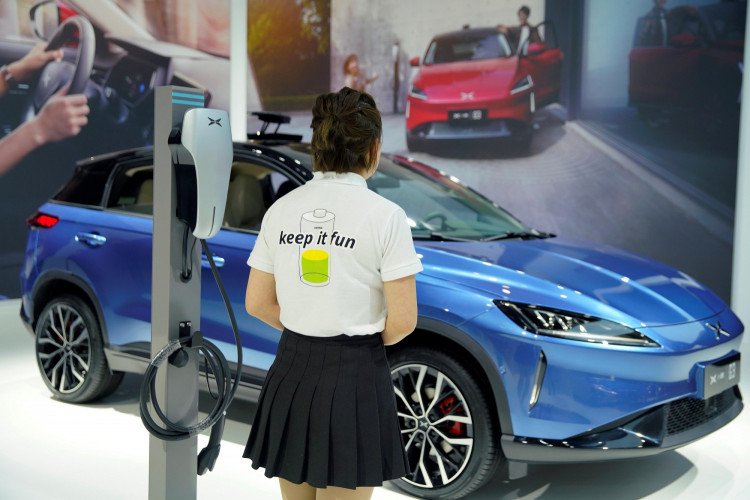Just months after its acquisition of a local car manufacturer, electric vehicle startup Xpeng Motors has just been given government approval to independently assemble its own vehicles. The startup, which was established less than seven years ago, aims to challenge both more established domestic and international brands such as BAIC and Tesla.
Xpeng revealed in a statement published on Tuesday that it had been granted its manufacturing license by the country's Ministry of Industry and Information Technology. With the license, the company can now begin the large-scale production of its first sports car, the Xpeng P7. The vehicle will be manufactured at its newly enhanced fully-automated high-tech facility in the city of Zhaoqing in China's southern Guangdong province.
The facility, which was previously owned by Guangdong Foday Automobile before its acquisition, is equipped with more than 260 industrial robots. Before the acquisition, Xpeng had relied on third-party suppliers and builders to produce its prototype vehicles and its first production model, the Xpeng G3 fully-electric sports utility vehicle (SUV).
The company released the electric SUV, which was built by Xpeng's contractor Haima Automobile Co, back in 2018. Haima Automobile is a subsidiary of state-owned carmaker FAW Group Corp.
Xpeng has reportedly already started the production of its sports car at the facility. The company's co-founder and chief executive officer, He Xiaopeng, noted that it expects to roll out the first batch of its new fully-electric sports car by the end of June.
Xpeng claims that the P7 is China's first level 3 autonomous driving electric sports car, capable of driving by itself without any human input in certain driving conditions. The company has priced the vehicle from 229,900 yuan to 349,900 yuan or roughly $32,462 to $49,204 after subsidies. The vehicle is priced competitively against the Tesla Model 3, which has a base price of 271,550 yuan after subsidies.
The Chinese electric carmaker originally unveiled the P7 at the Shanghai Auto Show last year. Its expected release comes at a precarious time for the Chinese auto industry, particularly given the state of affairs of the economy following the months of declined demand due to the coronavirus pandemic.
During the first three months of the year, car sales in China plummeted to new record lows, extending the months-long sale slump. Last month, the trend was ended after the industry reported its first monthly increase of 4.4 percent. Xpeng is banking on the apparent rebound in car sales and the increase in demand to drive its further growth.






